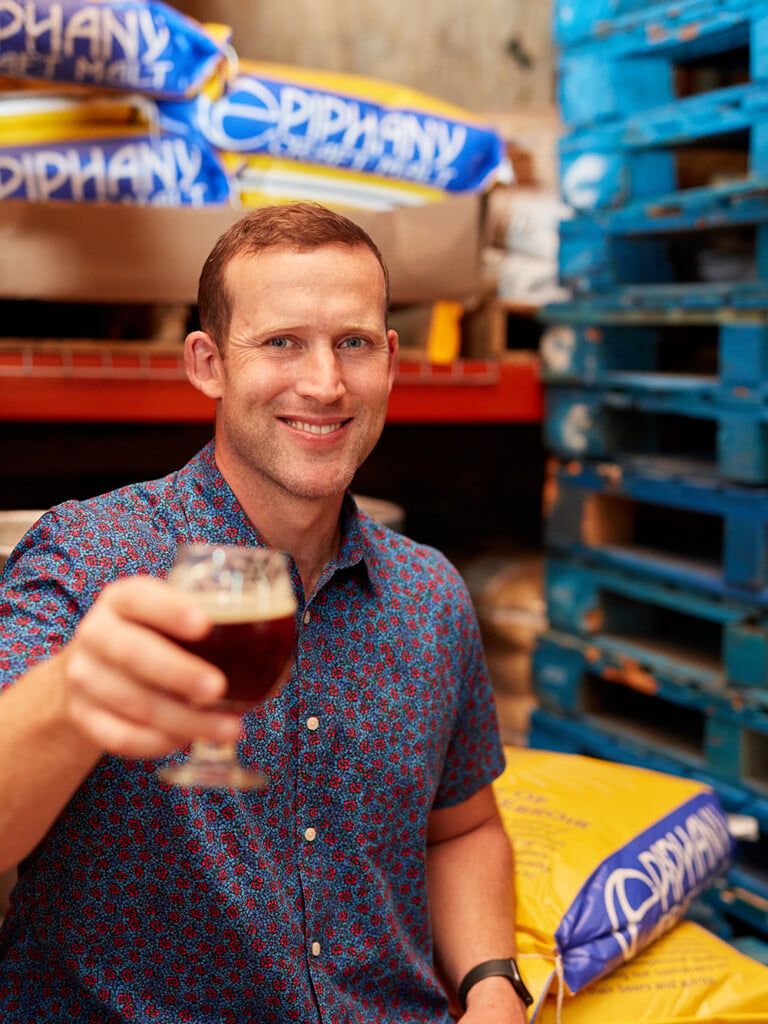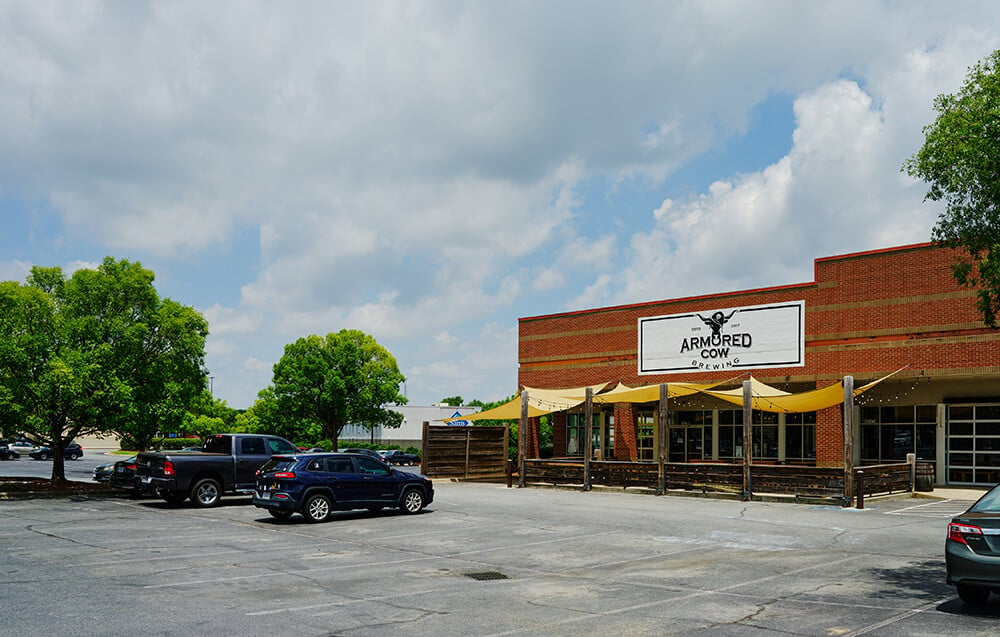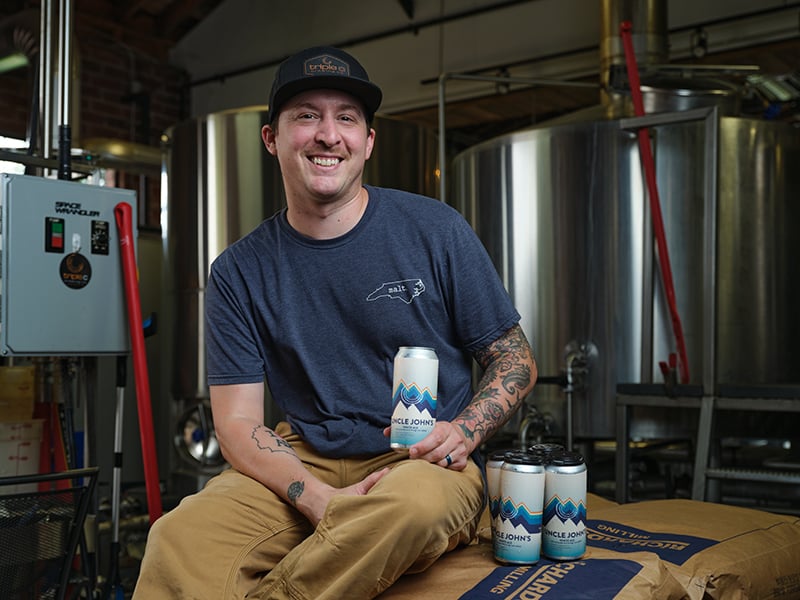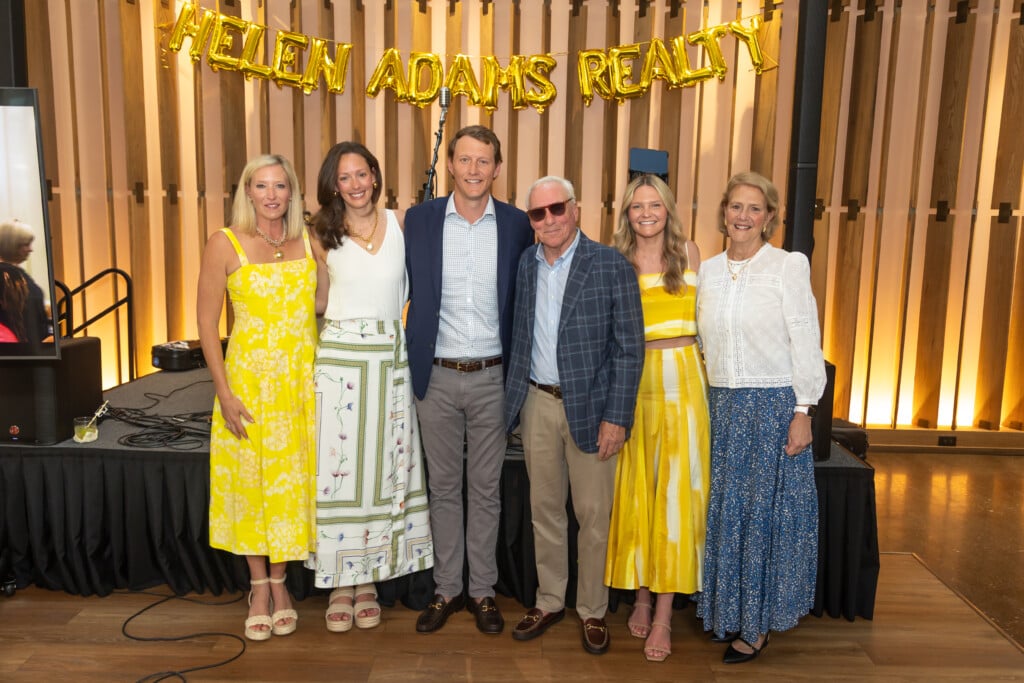A Charlotte Brewer Makes Space For New Faces
The Many Faces Initiative fosters inclusivity in North Carolina craft beer
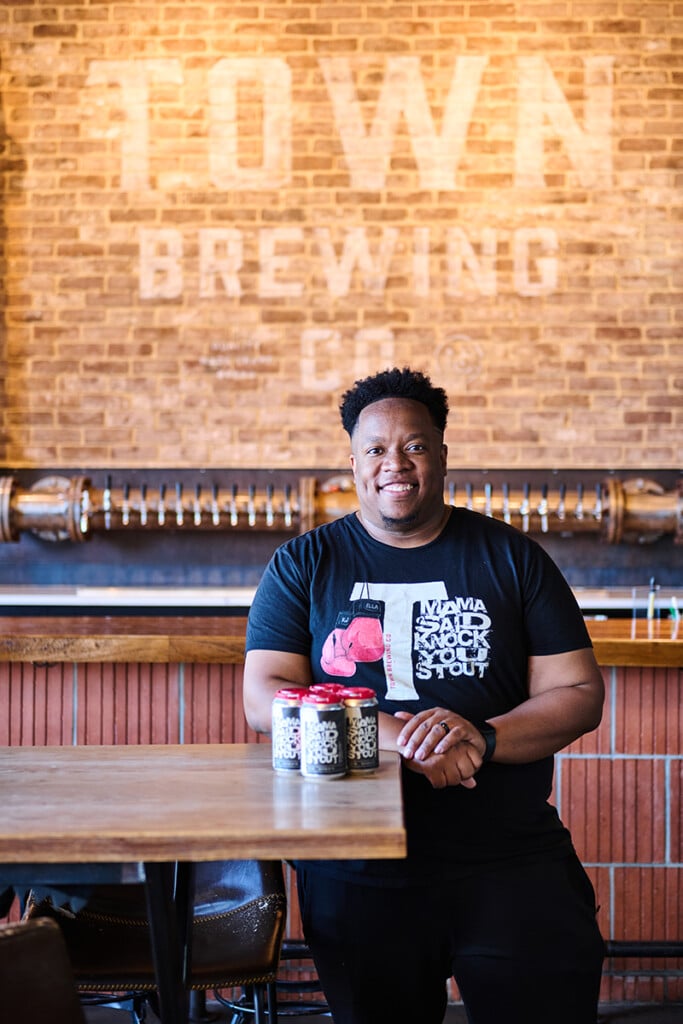
In May 2020, police killed George Floyd outside a convenience store in Minneapolis. The murder of another Black man at the hands of police sparked nationwide protests that called for an end to systemic racism—not just in law enforcement but across society.
Thousands of miles away in Charlotte, Brian Quinn—then head brewer at Town Brewing and on the board of directors for the North Carolina Craft Brewers Guild—took stock of the industry he’s been a part of since he left investment banking in 2011. Most brewery staff and patrons, he says, are white men like himself. “A taproom space in its best iteration can really serve as a third space, that kind of de facto community center,” Quinn says. “But then the more I’m looking at it, I’m like, how culturally inclusive is this space, or how representative of the communities in which these breweries are situated are the customers that are coming out to these places? … And as much as taprooms try to scream that they welcome everyone, there’s clearly some kind of disconnect.”
He knew something else about beer people: “One thing I love about the craft beer industry is that most brewery owners do very much feel that they want to be contributing more than just making beer,” he says. “And when brewers come together, they can get a lot done.”

Brian Quinn, the former head brewer at Town Brewing, co-founded Atomic Clock Brewing in Durham last year with his sister, Colleen.
That summer, Quinn launched the Many Faces Initiative to foster diversity and inclusivity in North Carolina craft beer. In its first year, Many Faces set to work raising money: around $9,000, through the sales of Town Brewing’s Many Faces West Coast IPA. In 2021, with fewer constraints from COVID, he launched the Many Faces Initiative internship, for people of color who want to pursue careers in the craft beer industry. (Quinn has since left Town Brewing to open Atomic Clock Brewing in Durham, but Town is still one of the most involved breweries in the initiative.)
“We didn’t want to just post a black square on Instagram and have that be enough,” Quinn says. “There were a lot of things that were feeling extremely performative at the time. But this felt like something that could have a lasting impact within craft beer in North Carolina by opening breweries’ eyes to different ways to bring in new talent and demographics. And on the flip side, by bringing in more people of color who are interested in craft beer as employees, suddenly your customers start looking different.”
Many Faces has hosted up to five interns each summer since. It partners with breweries across the state, including Town, to train them. With the money it continues to raise, Many Faces pays the interns, which widens the net of breweries that can afford to host them. “It’s tough, in general, for smaller craft breweries to hire, let alone hire someone who might be very, very green (to the industry),” Quinn says. “I wanted smaller breweries—ones that don’t even have an HR department—to be able to get involved in the very necessary DEI work.”

During Kevin Sampson’s Many Faces Initiative internship last summer, he crafted his own brew, Mama Said Knock You Stout.
During the 10-week program, interns at each host brewery rotate through the areas of operations, attend Many Faces’ networking and education events, and complete a capstone project on a craft beer topic they choose. Kevin Sampson was a Many Faces intern last summer at Town Brewing. He’s a filmmaker, the founder of the DC Black Film Festival, and a film professor at Central Piedmont Community College and Northern Virginia Community College.
“I’ve always enjoyed beer,” he says, “but being from Columbia, (South Carolina), I used to just be like, ‘Give me a Bud Light.’ But then I moved to D.C., and my coworkers are like, ‘Try this Allagash’ and all these different kinds of beers. And I’m like, ‘Wow, an IPA, what is this?’ And so that kind of opened my eyes to the variety—the vastness, if you will—of beer.”
In 2017, after a decade in D.C., Sampson and his wife, Alexandra, moved to Charlotte. During COVID, she gifted him a virtual homebrewing class. Then one day, Alexandra’s colleague gave her some beer that his wife, Brittany Makitan, had made through a program she’d just completed: the Many Faces Initiative.
“The beer was, like, in a can, it had a label on it, it looked good,” Sampson recalls with a chuckle. “And I was like, ‘Yo, I’ve got to do that.’” He applied the following year and started his internship last June.
For his capstone, Sampson started a documentary called Crafting Variety—as of press time, he expected to complete it in April—to explore diversity in the craft beer industry. For people of color, he says, “you don’t see people who look like you when you go to breweries unless it’s a Black-owned brewery.” (Less than 1% of U.S. breweries are Black-owned, according to industry data.) “What I’ve come away with from doing this documentary and ingraining myself in the industry is that there are these invisible walls that put up barriers. But I think sometimes you just need someone to say, ‘Hey, look, it’s OK. Just go in.’”
Sampson says the Many Faces Initiative is breaking those barriers. “I can’t show my support enough for the Many Faces Initiative,” he says, “because, in a world where diversity, equity, and inclusion are becoming bad words, they didn’t stop after 2020. A lot of these DEI programs kind of started but didn’t all last. And as a Black man, I know when people are being performative, and I know when people are being genuine. And the Many Faces Initiative as well as Town Brewing—they’re just genuine. Like, they just have their arms open wide.”
